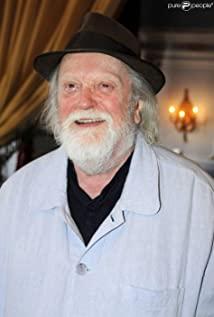At the beginning of the film "Before Sunset," the hero and heroine meet again after nine years, and before the endless conversation begins, the woman says she has to ask an important question: "Did you show up that day?"
The question Going back to nine years ago, strange men and women met by chance on the train, sparking a dazzling spark that burned all night. After dawn, the two returned to their own kingdoms. When parting, they changed their previous "just this night" agreement and set a reunion six months later, but they did not leave contact information.
This is the content of the previous work "Before Sunrise". After watching the previous work, it seems that the biggest suspense is - will they meet as scheduled in six months? As if coincidentally, at the beginning of the later work "Before Sunset", when the male protagonist came to France to hold a press conference with a novel describing the encounter nine years ago, the female reporter asked him the same question: you See each other in six months? The man's answer was smart, he said you can take this question as a test, if you think they meet, then you're an idealist, if you don't, then maybe you're a skeptic.
However, the real answer came later in the chat after the hero and heroine got off the boat. The woman said: If you really met me and we kept making love every day, would you still be able to write a novel like that? The man shrugged and said, "I would be happy to accept such a challenge... Their answers are often half-truths. Although this half-truth answer is humorous or teasing, it is full of sadness and charm. However, All the sadness and allure is because of the reality they are now in and the realization of it. Because of this, when a man is joking, he will say: I know. It's not about sex. In fact, it is more appropriate to say: It's not about time. That is, if they do meet again, even if a man is given enough time, can he write the same work? Whether you are optimistic or pessimistic, I think your answer will always be negative. The female reporter who asked the question is obviously too involved in the drama. As I said, people who are too involved in the drama will ask questions about "later" after the film is over. .
Here, I am reminded of an interesting phenomenon about these two films. A friend said to me: "Before you watch, I have to tell you an experience, that is, which work you watch first, you will prefer which work later, and I have not encountered an exception so far. Therefore, you are faced with It's a matter of fate - which one do you
watch first?" It's really a matter of fate, because of course I can't choose before I see it, and if I've seen it, there's no such thing as a choice. .
Since there is no choice, it's not an important question - it's not "which one do you watch first", but "why you like which one you watch first". There are factors that are not "experience" or "probability" here, that is to say, there is a certain "inevitability of fate" to draw the conclusion that "whichever one you watch first will make you like which one you prefer". A chance factor that can be classified as "probability". In fact, taking this a step further, this conclusion is an important proof that both works are very successful. Before giving the reasons, let's imagine: If we always prefer the one we watch later, what does that mean? That means that every work is not "complete" and lacks something that falls outside the work.
That's why we must always remind ourselves that "Before Sunrise" and "Before Sunset" should be seen as two separate works, and I would say that these two works deserve to be treated as such. However, we need to remind ourselves precisely because we cannot watch both works at the same time, whichever one we watch first is part of what constitutes us, and then when we watch the other , so that a constituted self will be involved. It is natural and reasonable that it is not the sequence that prevents us from looking at works independently, but the way we treat them.
Now let's go back to the question at the beginning. In the later work "Before Sunset", the question asked by the heroine, "Did you go to the appointment that day", is undoubtedly a question asked after the fact. If in advance, the question should be: "Will you go to the appointment that day?" Let's see how the two questions are different.
First of all I have to say that for works, this is not a simple distinction between before and after. We should have little argument that, in advance, the two young people must have believed that each other would be able to meet the appointment, which was consistent with their real wishes at the time. Afterwards, the heroine failed to attend the appointment for some reason, but when she heard the hero say he didn't go, she said, "You better have a good reason!" It can be seen that even though she didn't go, she still cares about the man Whether the protagonist is on an appointment. This kind of care is an absent presence, which shows that she is still in the same place after many years. Just like when she made the appointment, she hoped that the other party (and herself) would go to the appointment as scheduled. Here, physical space-time is not the crux of the matter.
Conversely, the same goes for the male protagonist. He went to the appointment but didn't see the heroine, and after pain and even anger he decided that the heroine must have some reason enough to keep her from the appointment (this reason is, of course, "despite no change of will, but some kind of out of control. An outside force prevented her from coming"), and at the reunion many years later, he heard that reason as he wished (the heroine's favorite grandmother died). But is he relieved? No, no. Rather, he suffered more. If the heroine had already forgotten about him and didn't take this matter to heart at all, he would probably be far less painful, but the problem was that when his expectations were confirmed, the pain was even deeper. He Yang Tianhao sighed on the cruise ship: "Why? Why you didn't come?" The heroine knew what he was asking, but she answered incorrectly: "I told you, my grandma..." The hero replied: "I know. But why? "——This "why" is also not something that physical space-time can answer.
Therefore, we can see that for the two parties, there is no disagreement about the "should" fulfillment of this agreement in that agreed physical time and space. As spectators, if we have a disagreement, there is probably only one, and that is that the audience, who thinks they will eventually hate each other, wants them to stop here so that they can keep a good memory of "that night". But even so, I have to say, because the audience who thinks this way is to avoid "mutual disgust" from becoming a reality, so, at the time of this appointment, they will probably still hope that both of them have the same ardent desire to go to the appointment ( That is to say, the subjective conditions have not changed), which does not in fact deny the "should". The only difference is that this part of the audience wants to hand over the decision of "whether to go to the appointment" to an external force majeure, thereby removing them from this Dilemma ("go to the date but hate each other later" and "fail to the date but make good memories"). I have to say that such thinking comes from a pessimistic or weak mind.
In any case, we have seen it clearly: from a subjective point of view, the two issues are not much different. The things that really make the difference are the things that go beyond subjective will, and always are—the things we call "destiny." If the two protagonists still love each other for nine years (if you don't deny it), then there is something truly tragic in their reunion nine years later under completely different circumstances. On the contrary, it does not have or at least weakens the nature of this tragedy. It is worth noting that when we say "beyond subjective will", it does not mean that the decision-making power is handed over to "external things" (even if it is God or "God"). form of understanding. The "destiny" we are talking about today, although it transcends subjective will, still requires us to participate and bear it. In other words, "Did you go to your appointment that day?" - this is not a matter of subjective will, and it is not pure at the same time. The question of whether physical space-time is present, even if there is an extremely good "external reason", we still have to give our answer.
The director must have taken great pains to find the reason for the "force majeure factor" that the heroine did not attend the appointment when shooting the post-production, but the final result still seems to be insufficient. The death of a close relative is enough to constitute the reason why the heroine did not go to the appointed place, but it is not enough to constitute a reason why she did not reconnect with the hero (for example, she could ask her friends to go there on her behalf, etc., as long as her subjective desire is strong enough, she can even Strangers can be entrusted...that's not a problem). It seems that this design is indeed a bit far-fetched, and it is one of the few shortcomings of the post. However, do you realize that the defect is not the sufficiency of the external reason first, because as long as it is carefully enough, the external reason can always be "designed", and what I care about is that it cannot be handed over to the author to "design" The protagonist's choice itself.
In fact, do we really need a reason that seems to be of equal weight to the appointment to explain why we didn't make it? Why can't it be that nothing special happened, but we just didn't go? Some people may say: Since both of them have such subjective wishes, and there is no external force to obstruct them, why didn't they go? Some people even jumped to the later work and said to me: Look, didn't the male lead go? If the heroine's wishes are the same as the hero's, how could she not go?
Here, what I want to say is that there are two inappropriate perspectives on works, one of which is the "God perspective". In the eyes of people with this perspective, the work is a testing ground for their subjective imagination. They have the omniscience and omnipotence of God at the same time. They have already mastered all the past and the future. They overlook the world and then manipulate the protagonist like a chess piece. . The works of Huang Yi and others are suitable for such people, who can freely assume that they can jump to any time and space and carry all their own history at the same time! And back to the works discussed in this article, how does the heroine know that the hero will go to the appointment before going to the appointment? If you can't know, how can that be the basis for a decision? Obviously we can't empower ourselves above the characters in the work, otherwise we can't really put ourselves in the shoes, in the works, and in life: I can't make my students understand what is beyond their age and experience, if I Say to them, "You haven't experienced it, so you don't know what's going to happen next." Well, if I'm not playing God, at least I'm playing a prophet.
Still think about it, when we are young and indifferent, we all make decisions based on what and what kind of decisions we make. As the heroine said on the cruise ship: When we were young, we always thought that we could meet many people who could love each other in our life, but only later found out that there are not so many in fact. This sentence can be used as an important reason for her absence from that appointment.
Yes, let's assume another situation: the night before the appointment, it was an ordinary Wednesday, the heroine returned to her residence as usual, maybe she just had a chat with three or five friends, but she still Remember, the next day was a special day. It wasn't difficult for her to get to Vienna, the train would arrive quickly, and it was always there, so she wasn't in a hurry. After six months, although she has a clear memory, and even thinks of that night, her face is still red and her ears are still hot, but she thinks it will be a dream, especially when there is no contact information, and she can't hear or see any proof of the other party's existence. Under these circumstances, the more she attached herself to that beauty, the more she felt that it was like a dream. At the party that just ended, a certain best friend talked about her quarrel with her boyfriend and then the protracted cold war... The heroine suddenly got tired of these stories that had been staged countless times every day, and she began to feel that she only had the man she had. That night was not a bad thing, at least, she had enough space to frame each other with misses and memories, and she didn't have to worry about disillusionment at all. Thinking of this, she felt a little dazed and uneasy. She couldn't imagine what it would be like to see the other party tomorrow. Maybe there will be some kind of strangeness in the moment they see each other? After all, she didn't even know the other person's full name.
A few months after sunrise and sunset, our heroine can't tell what memory is and what is imagination. She wondered if it was her own expectations that had been added to it - that big boy with a slightly red stubble, did such details really happen? Or, back ten thousand steps, even if that's all true, what about six months from now? It's not that we don't know the power of time, not to mention the six months of being disconnected from each other, even for men and women in love who talk on the phone every day, six months, they can become any kind of reality. So, the heroine thought, what about the boy? Is he still as shy as he used to be? Is he still so eager for himself that he can't express it? Or, it was just that he was in a lonely journey of emotional loss, and happened to meet a romantic and unrealistic exotic girl. That night was full of a healing effect of just the right temperature, so when he returned to the land of America , he immediately opened up a new life?
All this, at such an age, is never a certainty. Rather than a fixed number, the reason is not so much that we cannot see the future clearly, but rather that we just want to see the future clearly. And when he thinks about what the future might be like, he is actually thinking about what the future might not be like at the same time. If the future is just a "day that has not yet come", then all "possible" and "probably not" are impossible. If it is falsified, it has the same effect on his judgment. From this point of view, his choice to go or not to go has no necessary connection with his expectations, emotions or values. He went, it did not mean that he was a loyal and unswerving person, and he did not go, nor did it show that he maliciously deceived anyone.
So, on that day, our heroine may have just overslept a little because she was slightly drunk last night. When she was still planning to go to the appointment after hurriedly grooming, she thought of taking an exam today. Believe me, this class is not important to her, and she has skipped classes for many trivial reasons. Maybe it's just because the process of making up exams may be a bit cumbersome, and she is really reluctant to perform those extra exams. She knew that if she went, she would still be able to complete her studies without any setbacks. Thinking of this, she picked up the textbook and put it in her bag. The road to the train station and the school overlapped for a while, and she didn't make a clear decision immediately. On that road, she thought about it repeatedly, thinking about whether to go or not. Just as she was about to reach the gate of the school, she met her best friend, greeted her happily, then walked together, and then said topic last night. Our heroine didn't actually have much interest in discussing the subject, but she didn't interrupt, out of kindness. You must know that there is a living life around you. Friends who get along day and night in daily life are holding her hand at this moment and can feel the temperature. On the other side, there is a distant stranger. All expectations are only maintained by that unknown person. It's a dream, it's a real night, if she ever talked about it easily to the people around her, the most likely response she might receive would be "be careful, it might be a bad person" or "I didn't expect you to be so romantic" and so on. , in short, there is no sentence that can be close to the real heart.
Soon, they arrived at the school gate. Even when our girlfriends were chatting, our heroine was hesitant to go to the appointment, but when she got to the school gate, she turned around and walked in like a ghost - or just habitually. In the first few steps, she thought about interrupting her best friend's words, but then she thought that she was afraid that she would have to explain with words. At this time, the strict teacher appeared again, which made her disturbed and thought about the exam... ...In this way, she finally did not stop her usual steps and walked into the classroom with her best friend.
The class bell rang and the test papers were issued. A girl like her who didn't want to shock the world, in this case, it was much less likely to get up and walk straight out. Time passed by minute by minute, until she realized that even if she got up at this moment, she couldn't catch the next train, so she couldn't help sighing from the bottom of her heart - forget it, the child who insists on dreaming is still a dream Bar. Maybe he wouldn't really rush there, after all, he was in America, tens of thousands of kilometers away. After letting go of this thought, it was strange and natural that there was not only a sense of loss, but also a long-lost peace. To go or not to go? She has been troubled by this idea for a long time, and now, the time has passed, whether it is right or wrong, she no longer has to worry about it. That night, like all the other good things she had missed before for one reason or another (even just because of habitual laziness), was not unfortunate, but at the same time it was a pity for such a real In terms of life, it seems to be innocuous.
You see, nothing happened, and that's how our heroine missed what was probably the most important appointment in her life. You may say: since it is so important, how can it be innocuous or indecisive? Once again, my friend, I remind you not to look at life from the perspective of God, there are many things, if not necessarily later, such as after the loss, we look back and realize its importance, and then even with the emptiness of meaning The continuation of life becomes more and more important, how do you explain why there are so many regrets and regrets in this world? Besides, at such a young age, you might think that it was a very beautiful night for you, but it was only a night, and you called it "regret" after losing it, but you didn't realize that One night may not be just one night, it's your whole life, and you won't find any words to describe it.
It's not that our heroine hasn't met anyone since then, in fact she's had a lot of boyfriends, had sex with them, and then broke up because of this and that. Every emotional interaction and even trivial details made her think about that night off guard, and it made her think that after the agreed day, it was impossible for her to meet the male protagonist again (no, don't talk to me about the probability). We saw that she also completed her studies as usual, then went to work, made friends, fell in love, but something was always wrong, she didn't do anything less, but she wasn't that dedicated, a little bit down, as if there was something has been removed from her.
Before I knew it, nine years had passed.
Nine years is an unspecified number for many young people, longer than any period of their life, such as school, work (not to mention a relationship), even the most stable. Therefore, it is false to say that a precocious child is mature. If all the high emotions can be extremely concentrated in a certain moment, then, to realize the meaning of this moment is not something that can be accomplished in just a few years. Therefore, Those children who have experienced many things in life too early, their past is not actually "completed", on the contrary, this "premature" and "condensation" makes them lose the possibility of slow taste, but grows a kind of intolerance. something to come.
You can't simply speculate about the heroine's nine years after that, or simply imagine the tiny moods in her lonely nights or ordinary moments. Despair isn't a word, neither is life or death, and what's more unbearable than the two is that you can't even be sure that you "really" missed something that you now consider most important. Because at the moment you are the Jack who didn't catch the Titanic, you are the Thomas who didn't invite Tereza to Prague, you are not God, because you didn't show up in those big moments, so those so called big things are not "facts" . There's no way you can die for a relationship you've never really experienced or someone you've never really met.
Now let's go back to the heroine's question: "Did you make an appointment that day?"
What did you realize? Is this an inquiry about an unknown situation, a verification of a given situation, or both? When our heroine spent those indescribable nine years, suddenly one day, she saw the promotion of such a novel in the bookstore she frequented, the plot was "deja vu", and then she saw the author's name again . She said she understood then, but did she really understand? No, she just reawakened the desire to understand in the bottom of her heart. For the past nine years, she seems to have been carrying an extremely important question. If she didn't answer this question, she would not be able to live her life in peace. We always have to accept what happened in some way. Whether it's face-to-face or self-deception, we What doesn't happen like an animal happens is what happens without doing anything about it. However, although she harbors doubts, there is never an object to ask questions. The lack of an object who can give answers is precisely the reason for her question.
Now, he's here again, incredible. However, the time is not in six months, but in nine years. The conventions in physical time are of course broken, but what about that problem? Should she ask it out?
So, we see that the heroine suddenly stops and asks the question she has buried in her heart for nine years or more (because it is a "cosmic mystery" question). And before it was a polite greeting, she even asked "are you not going to catch a plane" with "concern", as if to say "it's okay" or "if you're busy, forget it", but how could she really care this problem. When the male protagonist saw her, instead of appearing blunt or resentful in his eyes, he was also a little overwhelmed, and she received a powerful hint. This is the second hint, the hero's novel has already given her the first hint, so she read it twice, not to determine "what happened in the first place", but to determine whether she is enough to ask that at the moment One question - did
you come that day?
Nine years later, they are no longer the youthful young people they used to be, and life has given them too much. Please don't say at that moment "they can continue their relationship", no, it's not that simple, all our heroine can think of at that moment may just be to prove what she missed because of that one missed appointment. Is it the kind of life she imagined. If, after nine years, you told me that you were on an appointment, or even, you told me that you had stayed where you were for nine years, you know what? You just add to my pain, and that confirmation is not only unpleasant, on the contrary, it makes me want to cry without tears. If you tell me the answer directly, it will be like a man buried under the ruins who is excavated after an inexplicable darkness, and sees the sun at first glance - I will not know where I am, I will not see the so-called "" any possibility of continuing the leading edge".
"Before Sunset" is outstanding in this regard. I don't need to repeat what happened next, because it was so natural, though it was a series of unconscious tensions, temptations, hesitations, cautiousness, preoccupation, wandering, wasted, eager, hesitant to speak. , approaching and swinging away, and so on. At the end of the film, the hearts and decisions of the two were not broken, and the suspense was just right. It's good that you feel that although the previous nine years have been wasted, it is still worth two words after all. Just imagine that if the two really reunited in the first place, it is very likely that, as the hero conjectured in the draft of the novel, "crazy sex and then gradually began to hate each other", the heroine commented on this conjecture: "That's very reasonable." So the long nine years were enough to teach them not to miss anything so easily.
I thought that the two of them had talked about "if the end of the world came" during the walk, and the actor joked that he would definitely not talk about his novel again, but he would still discuss the topic of the mysteries of the universe, "Of course in the hotel Between the crazy sex in the room".
This problem is not accidental. Think about it, if the male protagonist really leaves at the time, then the remaining minutes or hours, for these two people, is it not the eve of the apocalypse ? The male protagonist pulls the female lead onto the bench in a masculine manner. Although the female lead smiles, she unquestionably rejects the male lead's little sexual adventure - this rejection is the same as the rejection on the grass in the park in the previous work. Completely different, the reason for this small resistance link in the previous work is that "if I separate from you, I will feel very uncomfortable". Obviously, the young heroine's eyes are towards the "unknown future", then Even if one night will make her "uncomfortable", it is still only "one night". When she measures her current behavior with such a "future", she will feel that making love will make the night have an inappropriate "heavy", if it is just "one night", it should be that "unnecessary" reality" passed by. And what we, as viewers, clearly see is that whether she agrees or not, what happens or doesn't happen, it will be the decisive "one night". But on the bench nine years later, the heroine's refusal is this: "Today is not the end of the world." What does this mean? This is actually saying: if it's something that can be done with sex (and it's not sex, it's just mildly lewd and intimate behavior), then it's not what I want, it's not worth it After nine years of questioning and expecting an answer, no, this is out of time, and this is not the answer I want. At this moment, nine years later, what I am asking is no longer the one night, but "a lifetime". This "lifetime" is not the so-called words that I solemnly promised when I was young but I don't know the so-called words, but every minute and every second of the past nine years, before you appeared, I have already experienced those "physically coming days".
Our hero is overwhelmed at first, for him the reunion is the unexpected fulfillment of his unrealistic expectations, it takes him a long time to start believing that she is really right in front of him, and then again It took longer to understand that the heroine was in the same place as him at the moment, and then he could ask the "why" with a sigh. What he could show before was joking and eagerness that couldn't be shared. He didn't just want to determine the meaning of the encounter nine years ago, but he also wanted to determine everything that the nine years had given to each other. For these nine years, like the heroine, not one "doomsday" can be the all and final conclusion.
What impressed me the most was undoubtedly the climax of the film, the drive to the heroine's home. The male protagonist can finally express his deep pain for nine years to the once out of control heroine, he describes his dream to the heroine, over and over and over, the dream deeply pierced my heart, "You are pregnant. , you lie in front of me, you told me not to touch you, but I still did, I touched your ankle, your smooth and soft skin... When I wake up, I always burst into tears..." The heroine couldn't help it. She raised her hand to stroke his hair, but pulled it back like an electric shock.
This shot deeply, deeply pierced the apex of my heart. At least there are people in this world who can touch it as much as I do, and it's so real, so real that I'm speechless.
Where can I go to prove everything I have missed, where can I find you, let me ask the last question: did
you come that day?
View more about Before Sunset reviews











